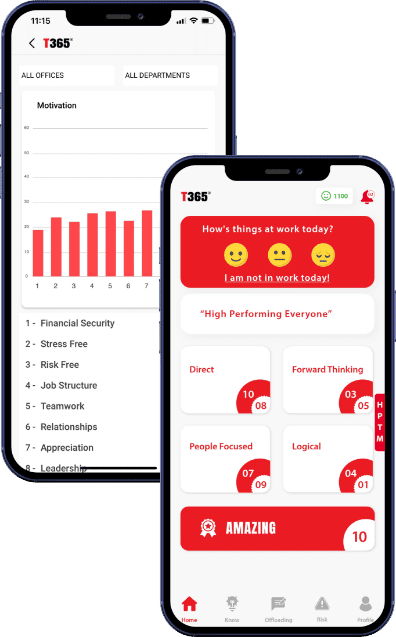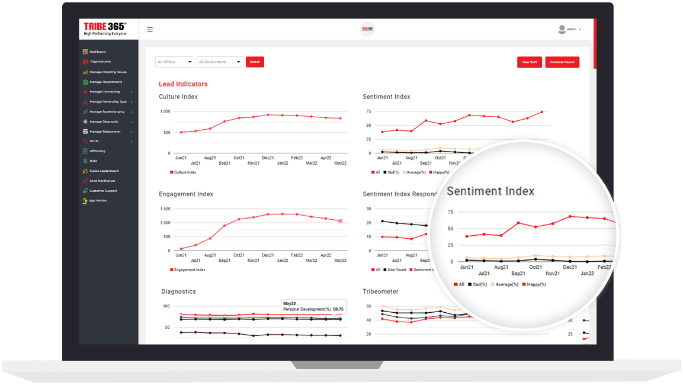Understand Culture, Love Culture
Why is culture important to me?
That’s a very good question, why is culture important to anyone? The honest answer is that it probably isn’t. Let me explain, just understanding culture as an important thing isn’t important. Culture is present whether you consider it important or not. It doesn’t require anyone to prioritise it or doctor it in any way, it will exist whether you like it or not.
Why does everyone bang on about culture then?
Another great question. People have identified that the environments we exist within dictate how things go. Logical right? But, that is probably where the logic stops. People understand the importance around culture but don’t really understand what makes environments productive or not. There is a lot of noise and confusion around what is important and what isn’t. The bad news is everything will be right, but under certain circumstances. For instance empathy is great and needed in the right circumstances. Direct hungry sales approaches are needed in the right circumstances. But the problem is, not a lot remains essential all of the time.
What is essential about culture then?
There are 2 laws of human action, they both have to be present for a human to do anything
- Humans only do things they see a purpose in (Belief)
- Humans only do things they decide to do (Autonomy)
Do you accept that? Explore it a little. Hopefully you’ll see, whatever situation you draw, for any action to take place there will have to be the perceived underlying purpose and a decision to do something. Right? Understanding this helps you understand the essential nature of communicating purpose and making sure you only support the inevitability of people making their own decisions.
Ignoring these two laws only means you are disrupting the likelihood of achieving everything you are involved with and disrupting the mental tranquillity of everyone you interact with. This is where toxicity creeps in. Does that make sense so far?
So how do we start to get control of this essential space of culture?
First you have begun to understand it, which is a great start – awesome stuff. If you want to go for growth, advancement, thriving, mentally positive and innovation in people then we have to create environments which support the 2 laws of human action. We have to create cultures high in belief and high in autonomy. That’s it
Easy right?
How do we create environments full of belief and autonomy?
Both need to be started in parallel to work. You need to start to create a team/organisation vision to facilitate belief and you need to start to respect and promote everyone’s autonomy. If you start vision work without autonomy you end up with visions which will not resonate with everyone and could waste time and money, and if you start promoting autonomy in people without the vision you will probably end up with a lot of less driven people and more likelihood of disruption.
How do we start to create a team/organisation Vision?
A vision is crafted from everyone involved in any activity – it is a deliberate human made sentiment bringing everyone together to deliver something we all believe in and maintain maximum belief/passion/energy. It is not fanciful, it is heartfelt sentiment of what really matters to a group.
The suggested way forward is to create a questionnaire to send out to all team members. The questionnaire should explore why the individuals love the industry, the activity and the team and understand what they see as the greatest things they can achieve as a team. Collate all the sentiment and pull together a vision.
Visions in early stages are likely to evolve rapidly, the most I’ve seen is 4 updates inside a 6 month period. Almost once a month. Don’t be afraid of this. The more realistic and true a vision is to an organisation the stronger the brand identity and performance as a whole.
Take it further: At Tribe365® we work with our Vision Maps® which include Vision, Mision, Focus, Beliefs and Values which is effectively the DNA to achieving the vision. Create your own vision map and start to identify the essential team behaviours driving the team forwards.
How do we start to Respect Autonomy?
Just having autonomy for the sake of autonomy is pretty useless, there always has to be a clear shared vision in teams, which is why the shared belief and autonomy must be run in parallel, considered together all the time. If autonomy is considered in isolation without respect to a shared vision then as individuals we’ll create our own purpose in everything we do, whether we like it or not. We relax – our bodies need to. We party – my brain needs that. We push ourselves – it’s for the greater good. We’ll always find purpose, it just might not be aligned to the purpose of what we as a group are trying to achieve, which then feels bad for everyone else, right?
To get autonomy right we have created 5 rules that we must all maintain, both in ourselves and everyone else
- We must only do things we believe in – all activity in teams must link back to the team/organisation vision
- We must offload the moment anything feels off, we want speed of communication otherwise things go wrong and slow us down. We are responsible for identifying what’s not working for us, no one else can.
- We must love structure for its role in continuous improvement, without process and stats how can we get better? Everyone is supported by structure and helps it evolve to where it needs to be.
- We must prioritise ourselves for sustainability. Any distractions/conditions/other priorities get everyone on board and make sure you are in the best space.
- We must value everyone and everything around us. No judgement, bitterness or resentment. Everything is where it is for a reason and everyone is striving to improve everything, right?
These rules address the most likely areas to affect autonomy in teams, and have been drafted through 6 years of exploration. If we do all these things, autonomy will be in the right place. If we don’t do these things people will start to have concerns in each other and fear will drift in… creating a fear driven environment.
What’s a fear driven environment?

Fear restricts us, it narrows our responses to reactions like “fight” or “flight”, fear also breeds stagnant and restrictive environments.
- The fear of people not doing things you think need to be done,
- The fear of results not being good enough
- The fear of people taking the mick
- The fear of people making mistakes
- The fear of injustice
- Endless fears…
How do we deal with them? When we are in a fearful state, more often than not, we start dictating.
Think of behaviours with children. Do this, do that. Not because you want to be a dictating narcissist, but because you are afraid they may get it wrong.
But understand this, the moment this starts to happen everything potentially great and amazing in people starts to disappear… trust, belief, autonomy, proactiveness, brilliance etc. You start to kill it all in an instant.
So are fears wrong? No way. They are gold dust. But instead of reacting emotionally, remember the two laws; for any action to happen in a human
- We must believe in the purpose
- We must decide to do it
So next time you are drifting into the fear stasis pull back and understand why the “fear” is so important, and communicate that with your team and see what they think. Does that make sense?
Let’s face it we will all continue to drift into the fear state the rest of our lives and we need to constantly manage it. At Tribe365® we talk about “RACE to perform” (Regroup, Assess, Collect, Engage) which effectively means anything feeling off, step back, start to have logical conversations driving the actions forwards. If you observe all the 5 rules in the Autonomy section, things should go pretty well. What do you think?
In Closing
Culture is awesome if you get it. For all of us leaders (parents, brothers, sisters, sons, daughters, cousins, friends, family members, team mates, work colleagues) yes everyone who ever needs to help someone find direction; The only responsibility you need to drive in anyone around you is finding the purpose in anything and making sure people own their autonomy. Autonomy is not something that can be altered – we all make our own decisions anyway, right? If we don’t do this as leaders we restrict growth and worse potentially affect mental balance.
If you have found this useful or want to explore further do link up and continue the conversation at team@tribe365.co at Tribe365® we have been exploring culture rogue style for the last six years and believe we have reached levels of understanding and support unparalleled in the world so do challenge us with anything in the culture/leadership space.

Interested in finding out more?
Book a meeting in with the Tribe team
today on +44 (0) 1325734847 or at
team@tribe365.co

















